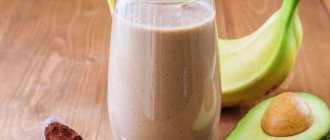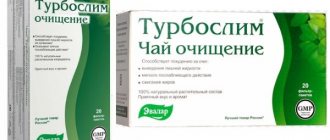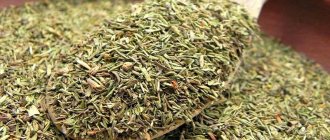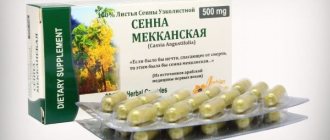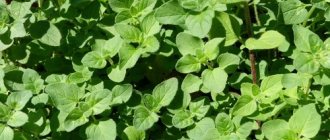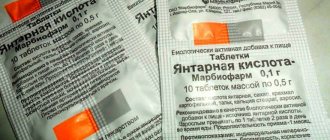Let's talk about what diuretic herbs exist, how to choose them and drink them correctly. All that is known about them is that they stimulate the excretion of substances from the body in the urine. Herbal diuretics help the body get rid of excess water. They also help cleanse the body of waste toxins. Used, among other things, to treat inflammation of the bladder, certain kidney diseases (such as kidney stones) or edema.
Click on the name of the plant in the text to read about it in more detail.
Which herb is diuretic and harmless and is it possible?
Diuretic herbs, as the name suggests, increase the amount of urine produced. Thanks to this, excess water and unnecessary or harmful metabolic products are removed from the body. It is a valuable property used in the treatment (or support of treatment) of many diseases. For example, inflammation of the bladder or urinary tract infections.
One of their great advantages is that while acting as a diuretic, they do not simultaneously lead to the leaching of valuable electrolytes from the body. Can diuretics be used always and without any restrictions?
Of course not. Like all natural and pharmacological medicines, urinary herbs can cause unpleasant side effects and even harm your health. Overdosing on herbs can lead to dehydration and decreased blood volume, which is dangerous. Especially for children, pregnant women and the elderly.
Also remember that in addition to stimulating urine production, medicinal herbs also have other properties. Some of them may interact with medications you take. Some may interfere with treatment, and others may have a negative impact on other aspects of health.
This last point is especially relevant to people who would like to use diuretic herbs as a cure for illness. Although these herbs are used as an aid in the treatment of certain kidney diseases, hypertension or urinary tract infections, this should always be done after consultation and under the supervision of a doctor.
Among the most harmless and at the same time diuretic: chamomile, nettle, parsley and cranberry.
Main indications
Swelling
You can look for the cause in a genetic predisposition or the presence of certain diseases, but often it is herbs that save the situation.
Cystitis
The inflammatory process is accompanied by painful urination, and there may be blood in the urine. The situation is saved by herbs that have a diuretic and antibacterial effect.
Heart disease and high blood pressure
Gentle and quick removal of excess fluid from the body is the key to reducing blood pressure and stress on the heart.
Pyelonephritis
The inflammatory process in the kidneys requires immediate external influence. It is important not only to use antibiotics, but also to ensure timely drainage of fluid. Stagnation leads to deterioration of the condition.
Weight loss
Activation of metabolic processes is carried out through the use of diuretics. In this capacity, diuretic herbs for edema are ideal. Numerous recipes for weight loss involve the use of phytodiuretics.
Other indications
It is recommended to use natural diuretics for the following conditions:
- poisoning;
- urethritis;
- urolithiasis, etc.
Only the attending physician has the right to recommend or prohibit the use of plants as diuretics in each individual case!
Nettle
Nettle infusion is probably one of the best known natural diuretics. However, not many people know that nettle juice is equally beneficial for health. In addition to regulating the functioning of the kidneys and digestive system, nettle juices add energy and improve well-being. You can also make a refreshing cocktail with this. It is used to make soup, add scalded leaves to salad, or brew it as tea. So you can drink it.
Horsetail
Discreet and common, horsetail has a number of health benefits, including stimulating urine flow. It helps in the fight against edema, kidney stones and urinary tract infections. The plant also significantly improves the condition of hair, skin and nails. Depending on your needs, horsetail can be brewed, made into a tincture, or ground into a paste and made into a compress.
Dandelion
Dandelion is a popular plant and weed that grows everywhere. It is one of the most versatile medicinal herbs. Used to treat liver, kidneys, gallbladder, pancreas, spleen and even inflammatory diseases of the respiratory tract. You can add dandelion leaves to salad, pesto, make smoothies and roots from them, and after drying and grinding, use them as a substitute for... coffee!
If we talk about which herbs are diuretics, then this is clearly in the top ten of this list.
Black elderberry
The most valuable medicinal properties are elderberry flowers. Preparations prepared from them have an anti-inflammatory and diuretic effect. They also fight free radicals and promote weight loss. This is why powdered elderflowers are used in herbal infusion mixtures. Raw elderberry fruits are poisonous, but when they are treated with high heat, the toxins are destroyed. It is from them that elderberry juice is made - a healing and healthy addition to many dishes.
Cranberry
Cranberry fruits are a storehouse of vitamin C, iron and polymyocyanides, one of the strongest antioxidants. It is the cranberry that is widely known for its properties: reducing the risk of heart disease, stomach ulcers, bladder infections and tooth decay. Because cranberries retain their effects when cooked, you can eat and drink them in almost any form: raw, canned, juice, herbal tea or tablet. Now we know that cranberry is also the answer to the question “which herbs have a diuretic effect.”
Diuretic teas
Diuretic herbal teas should be chosen carefully, as they can cause allergies. But at the same time, herbal teas, thanks to a complex of herbs, have the following effect:
- eliminate swelling on the face, limbs, neck;
- remove fluid;
- cleaned of toxins;
- act as a means of preventing diseases of the genitourinary system.
The main types of diuretic teas:
- Diuretic herbs. Among them there are “mono-teas” (based on one plant) and “poly-teas” (based on a set of herbs). Herbs in tea are selected based on compatibility.
- Pharmacy drugs. These are herbal preparations in finished form. They can be called urological, diuretic, monastic, renal. Sold in sachets. The pharmacy usually offers “Diuretic collection No. 1”, “Diuretic collection No. 2”, and Orthosiphon kidney tea.
- Green and black tea. All good traditional teas can become a diuretic if whole milk is added to them. Place 3 tbsp in one cup of tea. dairy product. You should drink 3-4 cups of this drink per day.
Birch leaf
It is assumed that fresh birch leaf sap stimulates filtration in the hair follicles and increases the excretion of harmful products. Improves the filtration capacity of the kidneys and probably flushes out “sand”, preventing the formation of kidney stones. That's why it's worth drinking to improve the functioning of these organs that are important for our body. The flavonoids and triterpenes contained in birch leaf extract have been shown to inhibit the enzyme prostaglandin cyclooxygenase and lipoxygenase, thereby acting as an anti-inflammatory and analgesic.
Chamomile
In addition to its widely known anti-inflammatory and calming effects, chamomile also has this effect. Usually the plant is sold in pharmacies in winter in the form of convenient filter bags. 1-2 of this is enough for a glass of chamomile tea to be ready. You can drink it 3 times a day, half a glass.
Chamomile is used for various edema of infectious origin and inflammatory kidney diseases. And also for disorders of the nervous system. Its effect is quite mild. If there is a serious problem, it is running, then it will be necessary to reinforce the action of chamomile with others. Think about what a strong diuretic herb can strengthen it.
Analogs
There are many substitutes for Diuretic collection. The following drugs are analogues of medications for edema:
"Apo-Triazide"
AROTECH Inc., Canada Price from 170 to 230 rubles.
Available in the form of round, flat, orange tablets. It has a combined effect (diuretic and hypotensive effect).
pros
- Can be used in the 2nd and 3rd trimesters of pregnancy
- Ease of use. No need to brew like Diuretic tea
- When taken, it is quickly absorbed and has a therapeutic effect.
Minuses
- Price. It is higher than that of the described product
- Presence of chemical components
- During treatment, there is a slowdown in the speed of psychomotor reactions
- Large list of side effects.
"Brusniver"
Krasnogolekarstva, Russia Price from 50 to 90 rubles.
A herbal medicine with antimicrobial, anti-inflammatory and diuretic effects. Available both in the form of filter bags and in crumbly form.
pros
- Can be drunk by pregnant and nursing mothers and children
- Available without a prescription
- Completely natural composition
- Combines well with other drugs
Minuses
- Difficult to use - you need to wait for the mixture to brew
- Bad taste
- May cause an allergic reaction
- Often causes bouts of hunger.
Analog remedies for infectious and inflammatory diseases of the urinary tract (pyelonephritis, cystitis, urethritis) are:
"Cyston"
Himalaya, India Price from 300 to 400 rubles.
Herbal preparation. Available in the form of round biconvex tablets, rough to the touch, light brown in color with inclusions of a darker or lighter color.
pros
- Ease of use
- Does not affect the speed of psychomotor reactions
Minuses
- Presence of chemical components
- High price
- Cannot be used by pregnant and lactating women
- A large number of side effects.
"Nitroxoline"
Borshchagovsky Chemical and Pharmaceutical Plant, Ukraine Irbitsky Chemical Plant, Russia Price from 60 to 90 rubles.
Antimicrobial drug. It is used for infectious and inflammatory processes in the genitourinary system.
pros
- Ease of use
- Does not negatively affect drivers and those people who work with equipment
- Operational result
Minuses
- It is forbidden to drink during pregnancy and breastfeeding
- Available only by prescription
- The tablets taste bad
- In many countries, Nitroxoline tablets are prohibited due to the possible development of severe reactions
- May cause intestinal dysbiosis, as it is an antibiotic.
Rose hip
Traditionally, it is considered a plant for treating the heart. This is true, but not the whole truth. Rosehip also has a positive effect on the formation of powerful immunity. It has a beneficial effect on the heart and blood vessels.
In order to prepare rose hips you need 2 tbsp. pour two to three liters of hot water over the fruits of this plant. Ideally, the drink is infused in a thermos overnight. The fruits need at least six hours to release all their beneficial elements.
Recipe for swelling
The resulting liquid is drunk one glass 203 times a day. When preparing, you need to focus on the color of the drink. The more saturated, the greater the concentration.
In recent decades, there has been a very rapid increase in the consumption of herbs and nutritional supplements worldwide. About 20 percent of the population regularly uses them, and in Western countries this figure reaches 70%. Not all herbs are considered medicines. This may be due to the lack of evidence of their effectiveness and safety.
In some cases, herbal consumption of natural products, especially from an unreliable source, can lead to serious consequences. They may be kidney or liver failure. Improper use of diuretic herbs may also cause dehydration or electrolyte imbalances, especially in the elderly and children
.
This is why you should consult your doctor before making an herbal infusion, especially if you are taking any medications.
The most powerful herbs with diuretic effects
In folk and official medicine, natural diuretics are used to treat kidney disorders, urolithiasis, and relieve edema. The most powerful herbs with a diuretic effect:
- Erva woolly removes sand, stones, toxins, and reduces blood pressure. To prepare a decoction, boil 5 g of the plant, add 200 ml of water for 15 minutes. Drink 3 times. It is recommended to drink through a straw to avoid damaging your tooth enamel.
- Bearberry is a powerful natural diuretic and antiseptic. Stimulates diuresis, increases immunity, improves the tone of arteries and capillaries. 20 g of herb are poured with a glass of boiling water, left for 20 minutes, take 2 tbsp. l. 3 times/day.
- Horsetail is used to treat the kidneys and bladder. Perfectly eliminates swelling, improves blood circulation. For 100 ml of boiling water, 10 g of raw materials are used, leave for 30 minutes, take 1 tbsp. l. three times/day.
- Milk thistle has a mild and short-lived diuretic effect. Decoctions from it should be drunk little by little and every hour during the first week of treatment. This inconvenient use is more than compensated for by its medicinal properties. The plant normalizes diuresis, relieves vascular spasms and renal colic. A decoction is prepared from seeds: 30 g of raw material is boiled in 500 ml of water until half of the liquid has evaporated. Drink 1 tsp. every hour, a total of 12 times/day. After 7 days of treatment, take 1 tsp. three times/day.
- Thyme is a herb with a pronounced diuretic, immunomodulatory, analgesic and sedative effect. Used to treat atherosclerosis, kidneys, liver, stomach, and to cleanse the blood. Drink instead of tea, put 10 g of herb on a 500 ml teapot and leave for 20 minutes. Take 1 glass up to 3 times a day.
- Calendula is used for rickets, scrofula, kidney stones, bladder, and atherosclerosis. Grind 10 g of flowers, steam with a glass of boiling water, let stand for an hour, take 1 tbsp. l. up to 5 times/day.
- Horsetail relieves swelling, lowers blood pressure, improves liver and kidney function. Cleanses the blood in case of lead poisoning. It has a gentle effect, so it can be used by elderly people and children. To remove excess liquid, prepare a decoction: add 30 g of herb to 400 ml of boiling water, leave for an hour, drink a day.
- Birch buds eliminate swelling, improve metabolism, crush stones in the kidneys and bladder, and improve liver function. Add 20 g of kidneys to 300 ml of boiling water, boil for 10 minutes, filter, dilute with a glass of boiled water. Drink it a day, in several doses. Birch sap, which is drunk up to 3 glasses/day, has a similar effect.
- Linden blossom is a source of glycosides, carotene, vitamin C, and saponins. Linden tea is recommended to be consumed as a diuretic for rheumatism, gout, urolithiasis, and hypertension. To prepare the drink, take 2 tbsp per 500 ml of water. l. raw materials. Steam with boiling water, leave for 10 minutes, drink throughout the day.
- Coltsfoot is an effective diuretic used for kidney disease, edema, and dropsy. Can be used to combat excess weight. The herb normalizes the digestive tract and speeds up metabolism. To remove excess liquid, take a decoction: add 10 g of raw material to a glass of boiling water, leave for 10 minutes, drink 3 times.
- Sage contains organic acids, alkaloids, paradaphenol. Increases tissue regeneration, relieves spasms of muscles and blood vessels. Improves blood flow. The leaves of the plant have a diuretic effect. Add 1 teaspoon to a glass of hot water, infuse, drink at a time.
- Oregano contains flavonoids, phytoncides, thymol, carvacrol. It has a beneficial effect on the kidneys, liver, blood vessels and heart. A decoction from the plant is recommended for use in cases of severe swelling due to high blood pressure, digestive disorders, and intestinal diseases. For 350 ml of boiling water take 30 g of raw materials. Drink during the day.
- Flax seeds are an effective diuretic, choleretic agent, washes away stones and sand from the kidneys. Due to the strong diuretic effect, it is necessary to ensure that the daily volume of fluid consumed is at least 2 liters. The easiest way to use is to grind the seeds into powder, use 1 tsp. in the morning with water.
During treatment with diuretic herbs, you need to carefully monitor blood pressure readings and take tests to monitor your condition.
What are the best diuretic herbs?
It is useless to argue who is better and who is worse. It’s better to make a rating of which herb is the most diuretic. So, here is the most powerful diuretic herb:
- Bearberry. its action is the most powerful and effective. If you doubt whether you need this, dilute the resulting concentrated infusion with boiled water. If you answer the question “which diuretic herb is best during pregnancy,” then definitely bearberry. Its action is even shown to ladies in an interesting position.
- Horsetail
- Nettle.
- Dandelion.
- Parsley.
- Lovage.
Herbalists who do their job well give a great gift to people. Here we have collected diuretic herbs that can be a good assistant in the fight against the underlying disease. But most often this is an auxiliary solution to the eternal question of which diuretic herbs to choose and use for weight loss.
Herbal diuretics - mechanism of action
Natural remedies with a diuretic effect have a gentle, targeted effect on the site of pathology. They have a beneficial effect on the entire body in the absence of intolerance to individual components of plant origin. Some diuretic plants remove excess fluid along with urine, others demonstrate anti-inflammatory, disinfectant, and analgesic effects. Before starting a course, it is important to determine which herb is appropriate for a particular clinical picture.
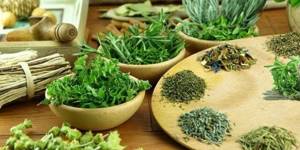
Cedar glasses (phyto-barrel)
In addition to the official ones, there is an auxiliary method of treatment that few people knew about. Until this moment. People gave and received absolutely unselfishly. If you steam in it, the excess water will come out of the body through the pores.
Due to the fact that the head is outside the phyto-barrel, the load on the blood vessels of the brain is significantly reduced.
Diseases for which diuretic teas are recommended:
- sciatica,
- cystitis,
- prostate inflammation,
- stones in the kidneys,
- urinary tract infections.
If we talk about which herbs act as a remedy, here is a whole list of what can be used to combat constipation or other problems with the gastrointestinal tract. We talked about which herbs have a diuretic effect.
conclusions
The main difference between natural diuretics and medications is their mild effect. In addition, they do not wash away beneficial substances from the body when treating edema, but it is prohibited to abuse herbal medicines.
For inflammation of the urinary organs, swelling due to hypertension and abnormalities in cardiac activity, herbal decoctions can speed up the process of removing stagnant fluid.
It is necessary to select medicinal plants together with a specialist, since many have contraindications for use.


